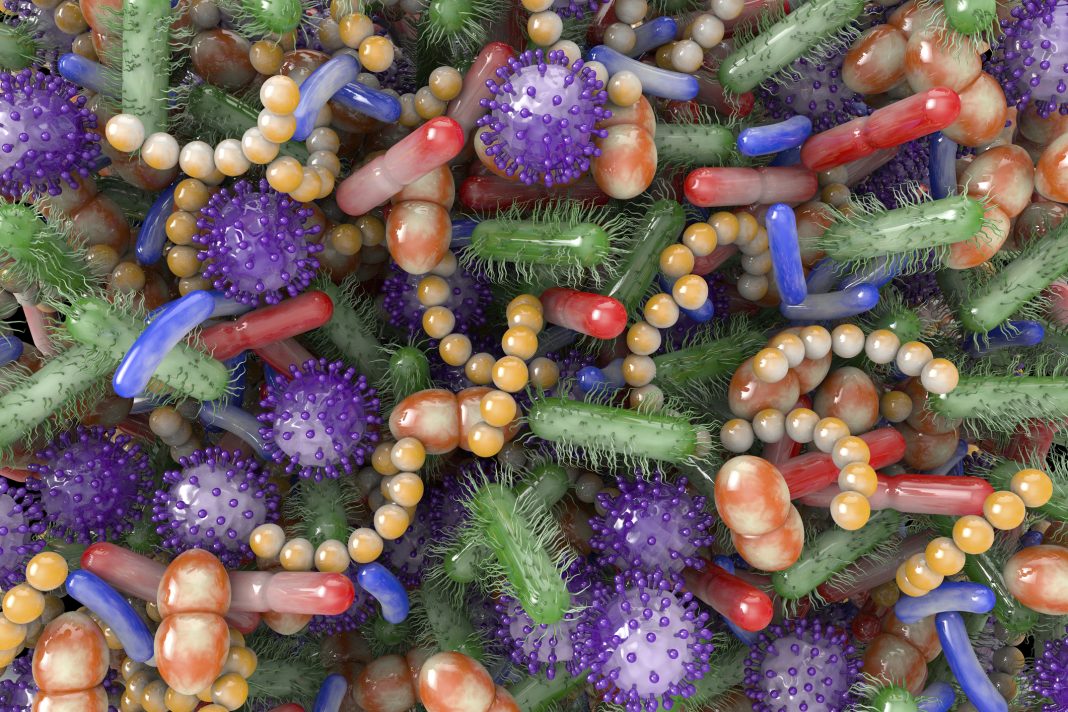The gut microbiome has been seen to affect our overall health. From our immune system, to appetite and metabolism, our gut microbiota has many influences on our health. The microbiome is composed of bacteria, archaea, viruses, and eukaryotic microbes that reside in and on our bodies. These microbes have tremendous potential to impact our physiology, both in health and in disease. Each person has an entirely unique network of microbiota that is originally determined by one’s DNA. A person is first exposed to microorganisms as an infant, and later on, environmental exposures and diet can change one’s microbiome to be either beneficial to health or place one at greater risk for disease. New research demonstrates that changes to our gut microbiome can be linked to Alzheimer’s-like behavior.
The new study, “Integrated analysis of behavioral, epigenetic, and gut microbiome analyses in AppNL-G-F, AppNL-F, and wild type mice,” was published in the journal Scientific Reports and led by scientists at Oregon Health & Science University (OSHU).
The researchers found a correlation between the composition of the gut microbiome and the behavioral and cognitive performance of mice carrying genes associated with Alzheimer’s.
“Epigenetic mechanisms occurring in the brain, as well as alterations in the gut microbiome composition, might contribute to Alzheimer’s disease (AD),” the researchers wrote. “Human amyloid precursor protein knock-in (KI) mice contain the Swedish and Iberian mutations (AppNL-F) or those two and also the Arctic mutation (AppNL-G-F). In this study, we assessed whether behavioral and cognitive performance in 6-month-old AppNL-F, AppNL-G-F, and C57BL/6J wild-type (WT) mice was associated with the gut microbiome, and whether the genotype modulates this association.”
“You know the expression, ‘You are what you eat?'” said senior author Jacob Raber, PhD, professor of behavioral neuroscience in the OHSU School of Medicine. “This may be part of that. While all mice were fed the same diet, the gut microbiome is affected in a genotype-dependent fashion and this, in turn, might affect your brain.”
The findings are the first to demonstrate a direct connection between the gut microbiome and cognitive and behavioral changes in an Alzheimer’s disease animal model.
“In a subset of female mice, we assessed DNA methylation in the hippocampus and investigated whether alterations in hippocampal DNA methylation were associated with the gut microbiome,” noted the researchers. “Among other differentially methylated regions, we identified a 1 Kb region that overlapped ing 3′UTR of the Tomm40 gene and the promoter region of the Apoe gene that and was significantly more methylated in the hippocampus of AppNL-G-F than WT mice.” APOE and TOMM40 are AD susceptibility genes.
The study is also the first to demonstrate a relationship between changes in the gut microbiome and epigenetic changes in neural tissue in the hippocampus, an area of the brain affected in Alzheimer’s. Previous research has indicated that altered neurogenesis in the adult hippocampus represents an early critical event in the course of AD. Previous studies have also linked gut health with brain health.
“Microbes may elicit an impact on behavioral and cognitive measures relevant to Alzheimer’s disease via epigenetic changes in the hippocampus,” Raber said. “Or, alternatively, it might be that the epigenetic changes in the hippocampus affect changes in the gut microbiome.”
Further studies are needed, but these findings bring researchers another step closer to connecting the dots and understanding the gut microbiome’s relationship with neurological disorders and diseases. The OSHU researchers are looking to determine whether it’s possible to reduce Alzheimer’s-like symptoms in genetically predisposed mice by altering their diet.
“The integrated gut microbiome hippocampal DNA methylation analysis revealed a positive relationship between amplicon sequence variants (ASVs) within the Lachnospiraceae family and methylation at the Apoe gene. Hence, these microbes may elicit an impact on AD-relevant behavioral and cognitive performance via epigenetic changes in AD-susceptibility genes in neural tissue or that such changes in the epigenome can elicit alterations in intestinal physiology that affect the growth of these taxa in the gut microbiome,” concluded the researchers.



